Thinking about stepping away from your current job can be both exciting and daunting. Whether you're pursuing new opportunities or simply seeking a change, crafting a well-written resignation letter is an essential step. It not only helps you leave on good terms but also maintains your professional reputation. Curious about how to express your decision with professionalism? Dive into our guide for a perfect resignation letter template that includes all the necessary elements!
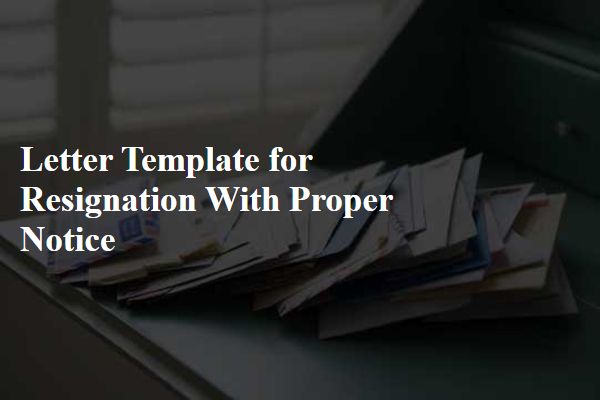
Professional tone and language
Resignation letters serve to formally announce the decision to leave a job, often including the intended last working day. These letters should convey gratitude towards the employer, express a willingness to assist during the transition period, and maintain a professional tone throughout the correspondence. A resignation letter typically starts with the sender's address, followed by the date, and then the recipient's information, such as the manager's name and company address. The body of the letter outlines the resignation, cites the notice period (usually two weeks), and may mention positive experiences or skills gained during employment. Conclusively, the letter should request confirmation of acceptance and significant details of the transition process for a smooth exit.
Clear statement of resignation
Clear statements of resignation emphasize professionalism and clarity. An effective resignation should begin with a concise declaration of intent, such as "I hereby resign from my position at Company XYZ, effective two weeks from today." A structured format includes specifying the position held, emphasizing gratitude for opportunities provided, and mentioning key experiences that contributed to professional growth. Highlighting the commitment to ensure a smooth transition, or even offering assistance during the handover period, reinforces a positive departure. Such communication is essential to maintain professional relationships and ensure a respectful exit from the workplace, particularly important in fields where networking and references are valuable.
Notice period duration
Submitting a resignation requires a thoughtful approach to ensure a smooth transition. A typical notice period duration is two weeks but can vary based on company policy; for instance, executives may have a one-month notice obligation. During this time, it's essential to communicate appreciation for opportunities received and express willingness to assist in transition efforts. By providing a clear, direct resignation letter, professionals maintain a positive relationship with their employer, which may benefit future references or networking opportunities.
Gratitude and appreciation
Resigning from a position is an important life decision that often calls for expressing gratitude and appreciation towards the employer and colleagues. In a professional resignation letter, it is customary to maintain a polite and respectful tone, acknowledging the opportunities provided during the tenure. This includes mentioning specific experiences that have contributed to personal and professional growth, such as skills developed or projects successfully completed. It's also valuable to provide adequate notice, typically two weeks, in order to ensure a smooth transition for the team and organization. A willingness to assist during this period emphasizes professionalism and fosters positive ongoing relationships post-employment.
Offer of assistance for transition
Resignation letters serve as formal notifications of an employee's intent to leave their position within a company. A well-crafted resignation letter includes essential components such as the date of the announcement, the intention to resign, the effective date, and appreciation for the opportunities afforded during employment. Additionally, it highlights the willingness to assist in the transition process, ensuring a smooth handover of responsibilities to the successor. This professional approach reflects positively on the employee's character, maintaining positive relationships and networks that can be beneficial for future endeavors. Proper notice typically adheres to company policy, ranging from two weeks to thirty days, ensuring sufficient time for recruitment or training of a replacement.

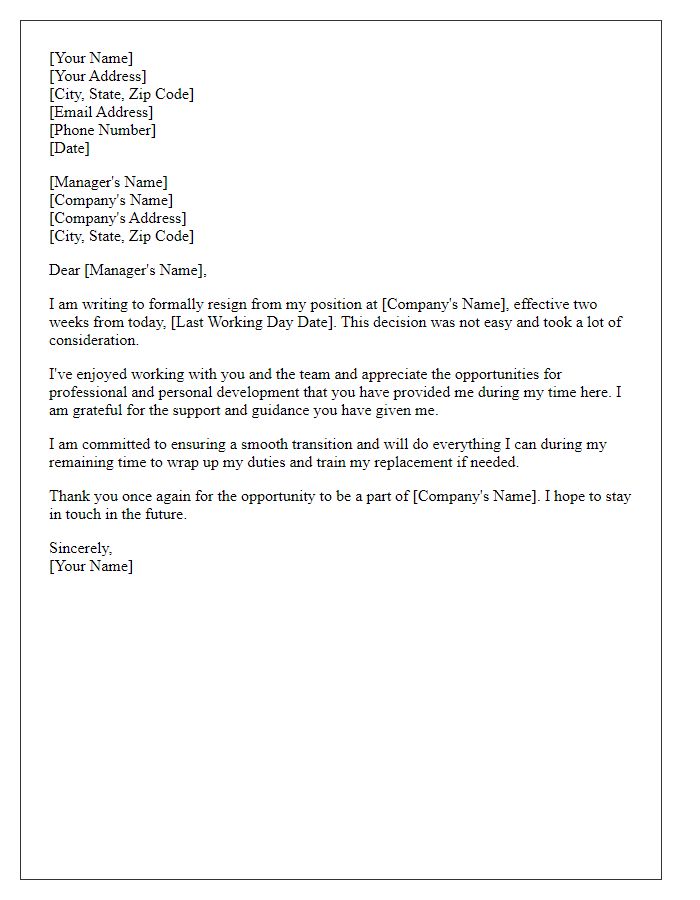
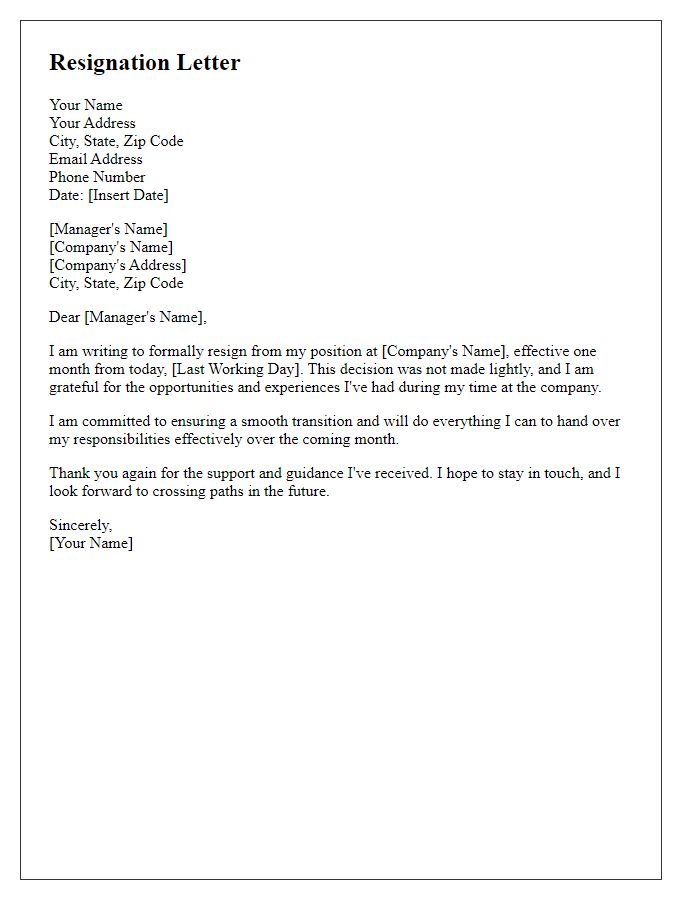
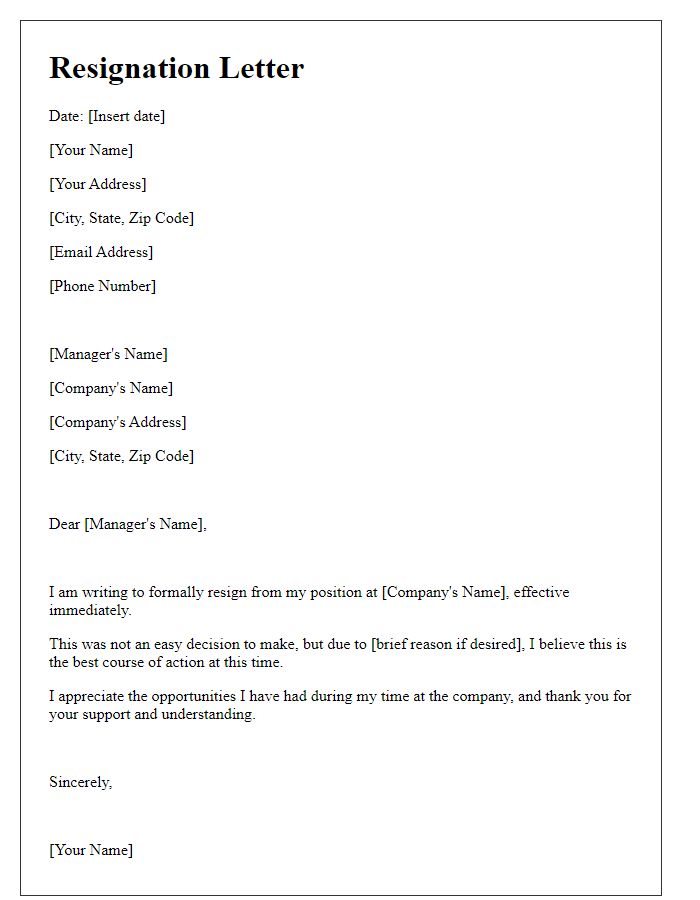
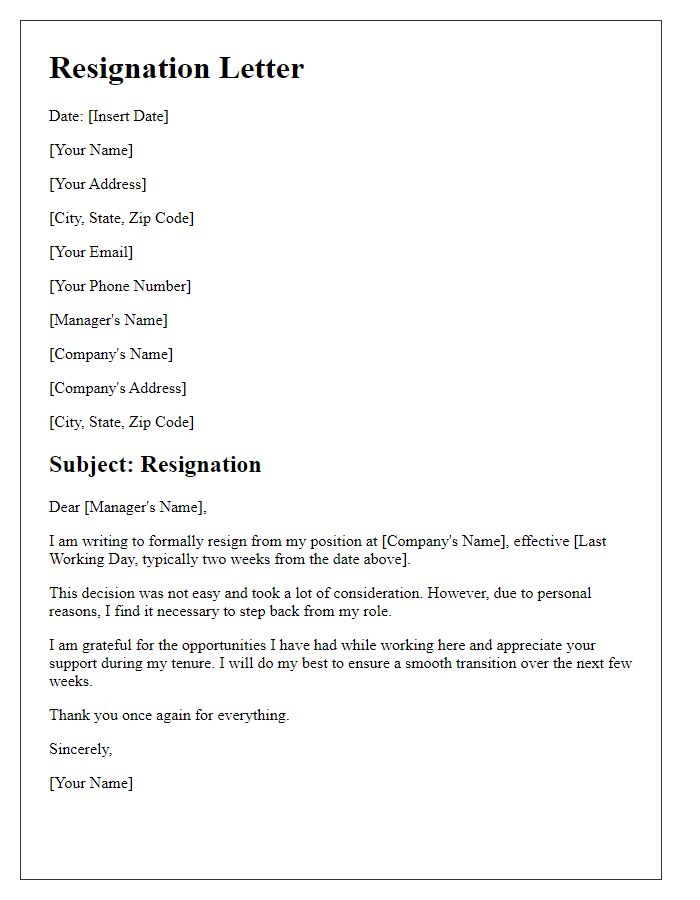
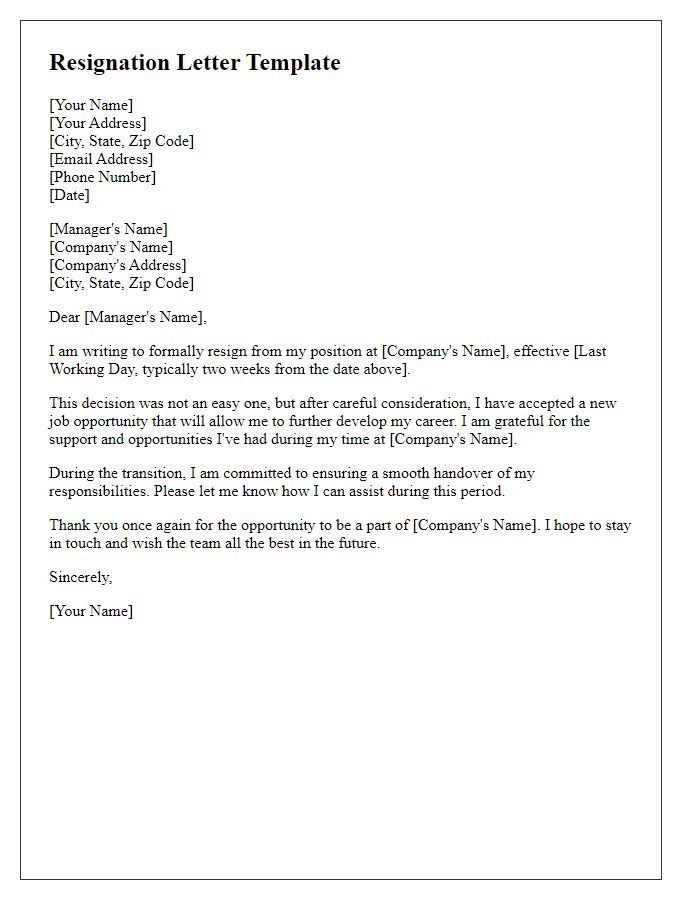
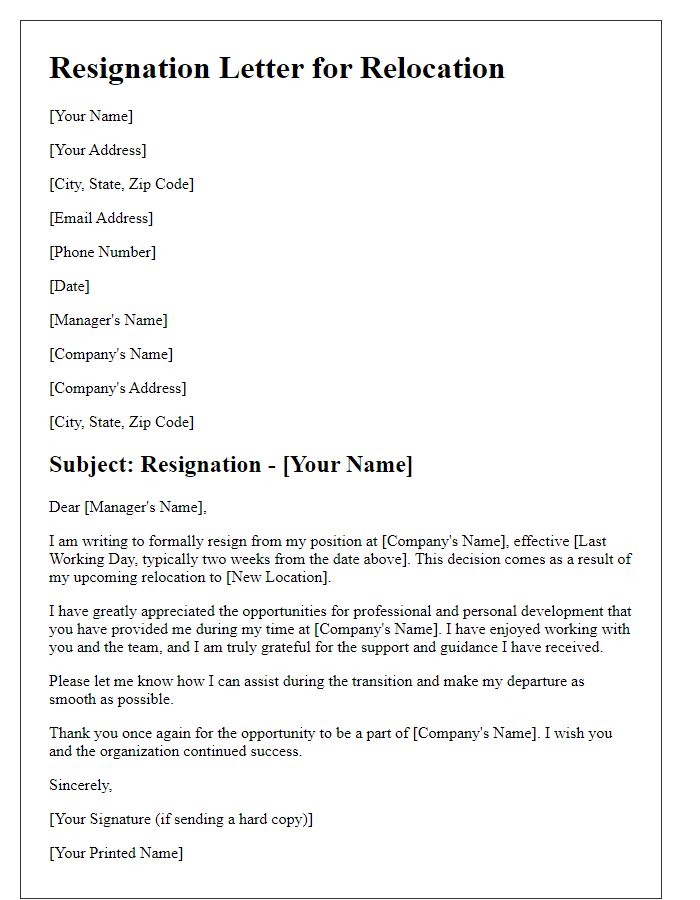
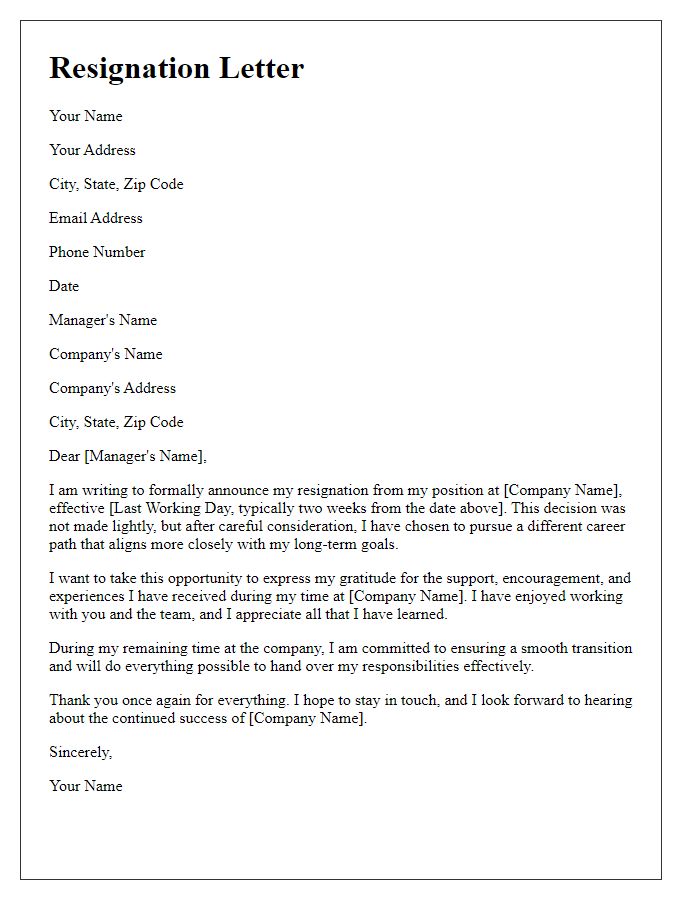
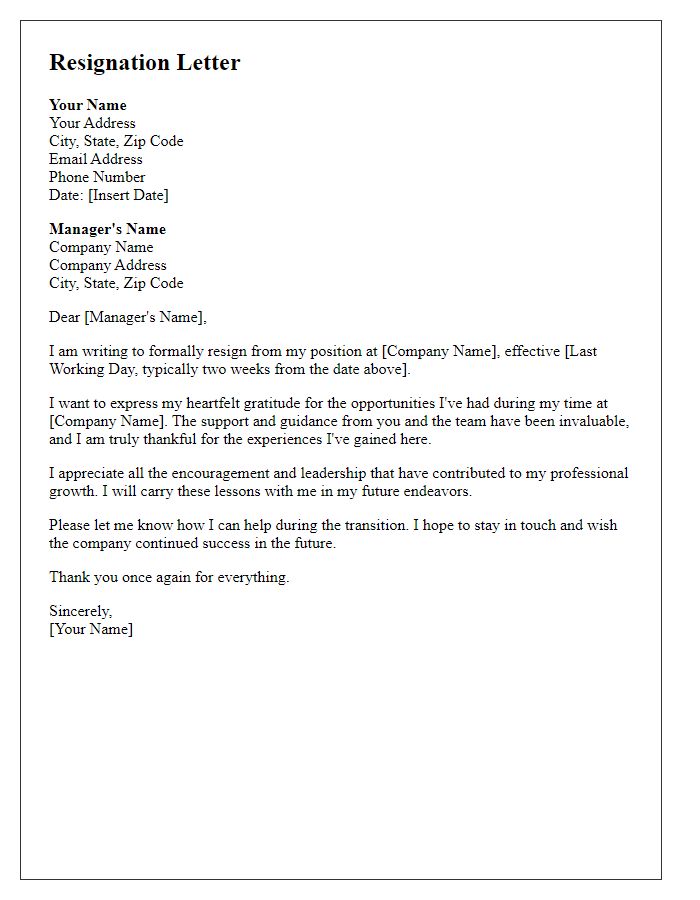
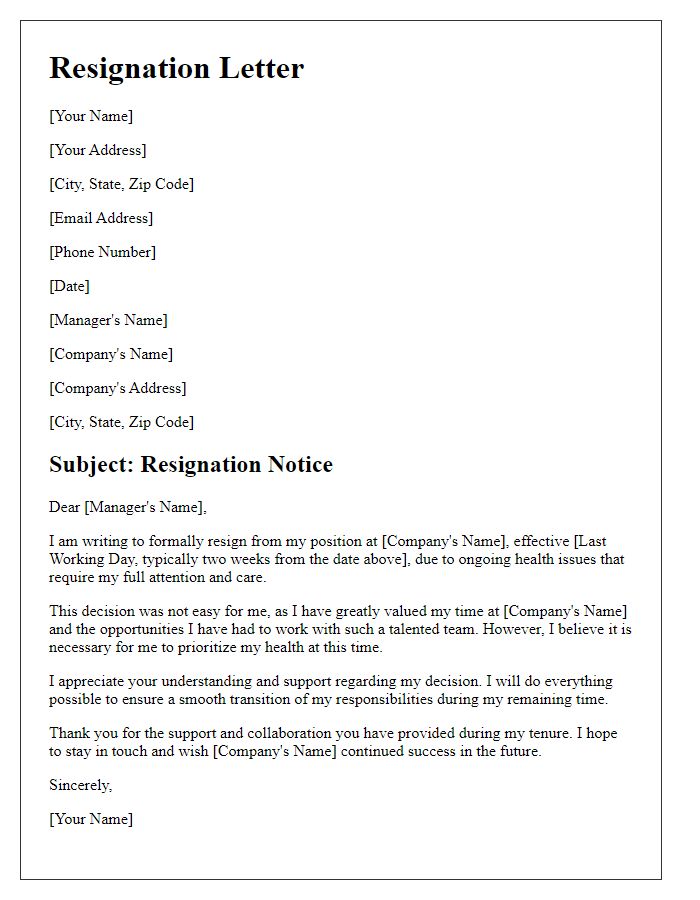
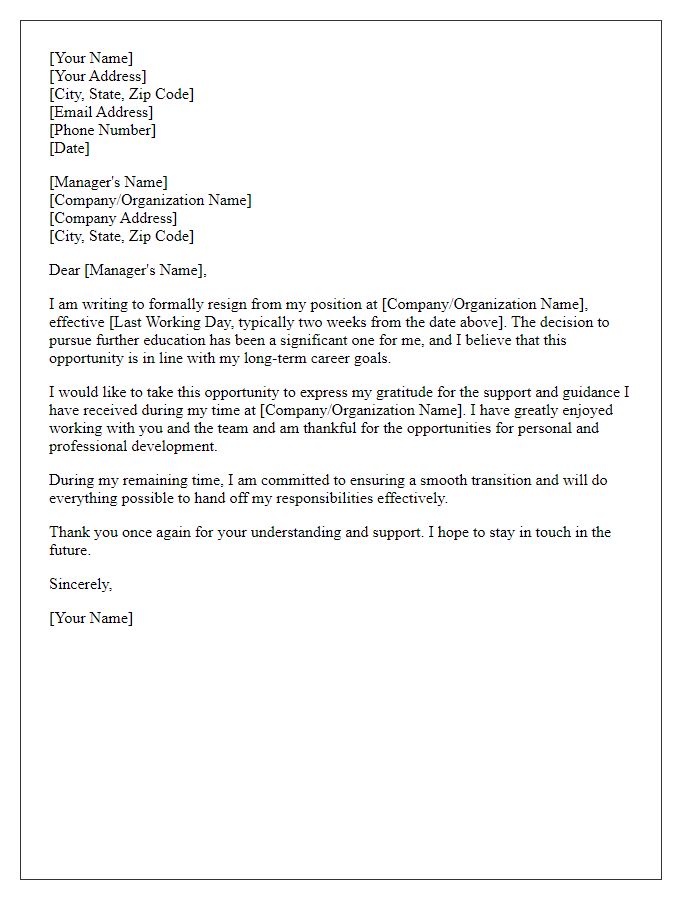


Comments